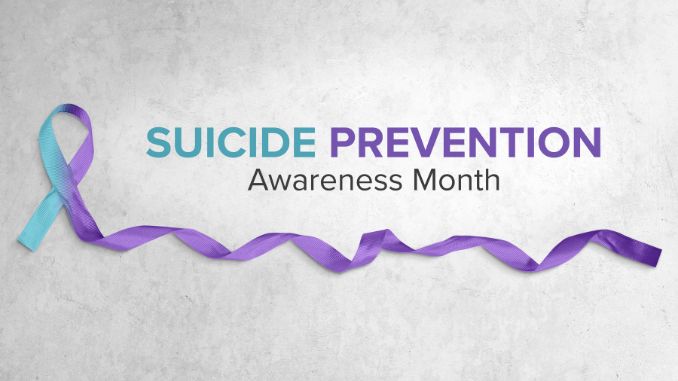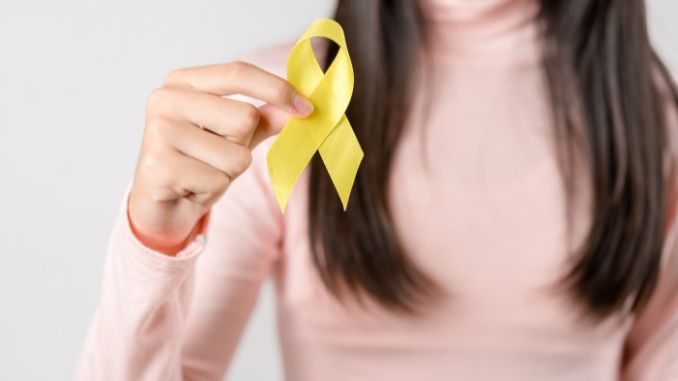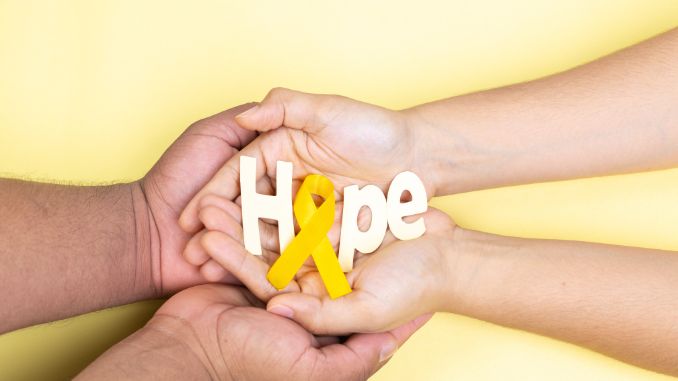In recent years, mental health awareness has gained significant traction, and rightfully so. As we navigate the complexities of modern life, it’s crucial to shed light on sensitive topics like suicide. September is designated as Suicide Prevention Month, a time when individuals, communities, and organizations come together to raise awareness, educate, and support those in need. In this article, we will delve into the importance of Suicide Prevention Month, its significance, and what we can do collectively to make a difference.
What is Suicide Prevention Month
Suicide Prevention Month is a dedicated time to deal with the importance of mental health and world suicide prevention day. It serves as a reminder that suicide prevention is possible and that every act of kindness and understanding can save lives. Coming together as a community can create a supportive and compassionate environment against suicide loss and foster mental health and well-being.
This month, various organizations, communities, and individuals join forces to raise awareness, educate others about preventing suicide, and provide resources for those in need. It is a time to engage in open conversations about suicide prevention, break down the barriers of stigma, and offer support to individuals struggling with mental health challenges.
The Effect of Raising Awareness About Suicide Prevention
Raising awareness about suicide prevention is essential in combating mental health stigma and encouraging individuals to seek help. Many people still hold misconceptions about suicide, which can prevent those in need from reaching out for support. We can create a more understanding and empathetic society by spreading accurate Information and dispelling myths.
One crucial aspect of raising awareness about suicide prevention is educating ourselves and others about the warning signs of suicidal ideation. Understanding these signs can help us identify when someone may be at risk and take appropriate action. It’s crucial to keep in mind that thoughts of suicide can impact individuals of any age, gender, or socioeconomic background.
The Impact of Communities on Suicide Prevention
Communities play a crucial role in preventing suicide. They can offer support, access to resources, and a feeling of belonging to individuals facing difficulties. When people feel a strong connection to their community, they are more inclined to seek assistance and discover the necessary help.
Creating a supportive community begins with education. Learning about mental health for ourselves and educating others can enhance awareness and foster better understanding. This can be done through workshops, seminars, and community events focusing on mental health education. Additionally, community organizations can partner with local mental health professionals to provide resources and counseling services to those in need.
Moreover, community leaders and influencers have the power to make a difference. They can inspire others to do the same by speaking openly about mental health. When influential figures share their experiences or support those struggling, it sends a powerful message that mental health matters and that help is available.
Myths and Misconceptions About Suicide
Regrettably, numerous myths and misconceptions exist concerning suicide, which can impede efforts toward suicide prevention. One prevalent misconception is the belief that discussing suicide will somehow promote or instill the idea in someone’s thoughts. Discussing suicide openly can allow individuals to express their feelings and seek help.
Another myth is that people who talk about suicide are just seeking attention. It is crucial to take all mentions of suicide seriously, as they may indicate someone’s distress and need for support. Ignoring or dismissing these cries for help can have devastating consequences.
Factors Contributing to Suicide
Suicide is a complex and multi-dimensional problem, and its causes are often the result of a combination of various factors. It’s essential to approach this topic with sensitivity and empathy.
Here are some common contributing factors to suicide:
1. Mental Health Issues
One of the leading causes of suicide is mental health disorders, including depression, bipolar disorder, anxiety disorders, or schizophrenia. These conditions often lead to overwhelming emotional pain and despair.
2. Substance Abuse
Addiction, which encompasses alcohol and drug addiction, is another significant contributing factor that can increase the risk of suicide. It can impair judgment, worsen mental health issues, and lead to impulsive behaviors.
3. Psychological Pain
Some individuals experience intense emotional suffering, often related to experiences such as trauma, loss, or a sense of hopelessness, which can contribute to suicidal thoughts.
4. Social Isolation
Feelings of loneliness and social isolation can make individuals more vulnerable to suicide. A lack of social support can leave people feeling disconnected and without a sense of belonging.
5. Relationship Problems
Difficulties in personal relationships, including romantic relationships, family conflicts, or losing a loved one, can be significant stressors contributing to suicidal ideation.
6. Financial Stress
Economic hardships, unemployment, or financial instability can lead to feelings of despair and hopelessness, increasing the risk of suicide.
7. Bullying and Cyberbullying
Ongoing harassment or bullying, either in-person or online, can be a leading cause, particularly among young people.
8. Previous Suicide Attempts
A prior suicide attempt is a robust indicator of potential future attempts. as individuals who have attempted suicide are at a higher risk.
9. Access to Means
Convenient access to lethal means, such as firearms or medications, can increase the likelihood of a suicide attempt.
10. Stigmatization and Mental Health Stigma
The societal stigma surrounding mental health issues can deter individuals from seeking help and support, exacerbating their distress.
11. Cultural and Religious Factors
Cultural or religious beliefs can impact an individual’s attitudes toward suicide. In some cases, these factors may discourage seeking help.
12. Media Influence
Media portrayals of suicide can influence vulnerable individuals. Irresponsible or sensationalized media coverage can sometimes lead to copycat suicides.
13. Lack of Mental Health Services
Limited access to mental health services, particularly in underserved communities, can hinder individuals from receiving the needed help.
It’s important to note that suicidal thoughts and behaviors can be prevented through early intervention, support, and mental health treatment. If you or your loved ones are struggling with suicidal thoughts, seeking help immediately from a mental health professional, a crisis lifeline hotline, or a trusted individual is crucial. Suicidal ideation should always be taken seriously, and support should be provided without judgment.
Warning Signs of Suicidal Ideation
Recognizing the signs of suicidal ideation is crucial in intervening and offering support. While every individual may present different symptoms, some common indicators include:
- Expressing feelings of hopelessness or worthlessness
- Isolating oneself from friends and family
- Sudden changes in behavior, such as anger or irritability
- Giving away belongings or making final arrangements
- Talking about death, dying, or suicide
- Increased substance abuse or engaging in risky behaviors
It is essential to approach these signs with empathy and understanding, encouraging open dialogue and offering a listening ear. If you suspect someone may be at risk, it is essential to seek help from professionals or helpline services.
1. What to do if someone you know is struggling with suicidal thoughts
If you suspect that someone you know is struggling with suicidal thoughts, it is crucial to take their distress seriously and intervene appropriately.
Here are some steps you can take to offer support:
a. Initiate a conversation: Approach the person with empathy and express your concern for their well-being. Let them know that you are there to listen and support them.
b. Be a good listener: Allow people to express their feelings without judgment or interruption. Engaging in active listening can significantly impact making individuals feel heard and understood.
c. Encourage professional help: Suggest they seek help from a mental health professional. Offer to assist them in finding resources and making appointments if needed.
d. Stay connected: Regularly check in on the person and let them know you are there for them. Isolation can worsen suicidal thoughts, so maintaining a supportive connection with loved ones is vital.
Remember, you do not have to provide all the answers or solutions. Simply being there for someone and encouraging them to reach for help can make a tremendous difference and save lives in their journey towards healing.
2. Spreading hope and raising awareness through social media campaigns
In today’s digital age, social media platforms offer a powerful tool to raise awareness and spread hope during World Suicide Prevention Month. Engaging campaigns can reach a broad audience and encourage meaningful conversations about mental health and suicide prevention.
Organizations and individuals can utilize hashtags, share personal stories, and provide educational resources to raise awareness about suicide prevention. By participating in these various awareness campaigns and sharing valuable information, we can reach individuals who may be struggling and provide them with the support and resources they need.
3. Promoting mental health and self-care during Suicide Prevention Month
Taking care of our mental health is important, not only during Suicide Prevention Month but throughout the year. Prioritizing self-care and participating in activities that enhance well-being is essential.
Here are some self-care practices that can benefit mental health:
a. Prioritize sleep: Getting sufficient, high-quality sleep is crucial for your mental health and emotional well-being. A consistent sleep schedule and a calming bedtime routine can help achieve this.
b. Engage in physical activity: Exercise releases endorphins, improving mood and reducing stress. Find activities you enjoy and make them a part of your daily routine.
c. Practice mindfulness: Doing mindfulness activities, such as meditation, deep breathing exercises, or journaling, can be beneficial. These practices can help alleviate anxiety and foster a sense of tranquility.
d. Connect with others: Social support from community members is crucial for mental health. Spend quality time with loved ones, join support groups, or seek therapy.
Remember that self-care means different for everyone, so it is essential to find what works best for you and prioritize it daily.
How to get involved and make a difference during Suicide Prevention Month
1. Educate yourself and others.
Take the time to educate yourself about mental health, suicide prevention, and the resources available in your community. Share this information with others to raise awareness, reduce stigma, and prevent suicide.
2. Promote open conversations.
Encourage open conversations about mental health, both online and offline. Share your experiences, listen without judgment, and tell others it’s okay not to be okay.
3. Be a supportive listener.
When someone opens up to you about their struggles, be a compassionate and non-judgmental listener. Let them know that you are there for them and validate their feelings.
4. Know the warning signs.
Familiarize yourself with the signs of suicide and be vigilant in recognizing them. Look out for changes in behavior, withdrawal from social activities, or expressions of hopelessness.
5. Offer support and resources.
If you suspect someone may be at risk, offer them support and connect them with resources such as helplines, counseling services, or support groups.
6. Check in regularly.
Regularly reaching out to friends, family, and loved ones, even when they appear to be doing well, can be immensely meaningful. A simple text or phone call can greatly impact someone experiencing isolation.
7. Advocate for mental health.
Use your voice to advocate for community mental health support and resources. Attend local government meetings, write to your representatives, and support organizations working towards preventing suicide and mental health awareness.
8. Take care of your own mental health.
It’s essential to prioritize your mental well-being. Practice self-care, seek support when needed, and be mindful of your mental health journey.
9. Volunteer your time.
Look for volunteer opportunities with organizations focusing on mental health and suicide prevention. Your time, skills, and effort can significantly impact someone’s life and prevent suicide.
10. Spread hope and positivity.
Use social media and other platforms to spread hope, positivity, and support for those struggling with mental health. Share resources, stories of resilience, and uplifting content to inspire others.
Helpful Resources for Mental Well-being and Suicide Prevention
Numerous resources are available to support mental health and suicide prevention. These include helplines, online chat services, counseling centers, and support groups.
Here are some essential resources to consider:
- National Suicide Prevention Lifeline, also known as The 988 Suicide & Crisis Lifeline: Available 24/7, this helpline provides free and confidential support for people in distress or crisis. Call 1-800-273-TALK (1-800-273-8255) to reach a skilled, trained counselor.
- Crisis Text Line: Texting 741741 allows you to talk with a trained crisis counselor who will offer assistance and provide valuable resources.
- Local mental health clinics: Many communities have mental health clinics that provide counseling services on a sliding fee scale.
- Online support communities: Platforms like Reddit and Facebook have online communities dedicated to mental health support. These communities provide a secure environment for individuals to share their experiences and seek assistance.
Ongoing Support & Education’s Importance on Suicide Prevention
Suicide Prevention Month provides a crucial opportunity for communities to raise awareness, combat stigma, and support individuals struggling with mental health challenges. However, it is essential to remember that suicide prevention is not limited to the month of September; we can make every day a World Suicide Prevention Day. Continuous support and education are necessary to cultivate a society that prioritizes mental health and well-being.
By recognizing the warning signs of suicidal ideation, dispelling myths, and offering support and resources to those in need, we can make a significant difference in saving lives. Let us stand united in raising awareness, promoting mental health, and advocating for those who need it most. Together, we can create a world where no one suffers in silence, and hope and compassion prevail.

Rick Kaselj MS, is a leading kinesiologist and injury specialist as well as co-creator of the best-selling Unlock Your Hip Flexors program. Rick creates exercise programs that help people heal injuries and eliminate pain, so they can go back to living a full, active, healthy life.










